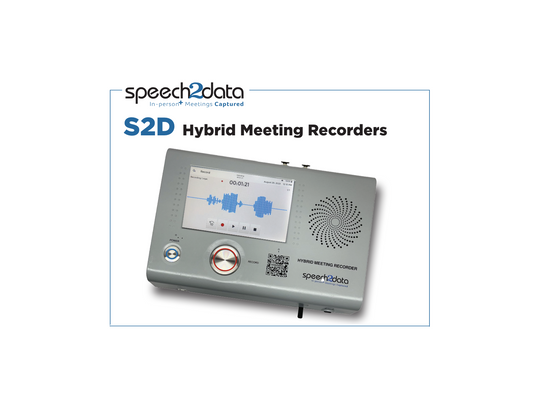Understanding Courts of Record: An In-Depth Exploration
Share
In today’s world of legal system, the concept of a "Court of Record" stands out as a fundamental pillar supporting the transparency and accuracy of judicial proceedings. These courts play a pivotal role in ensuring that every nuance of the judicial process is meticulously documented, thus safeguarding the integrity of the legal system. Whether you're a legal professional, a student of law, or simply curious about how justice is administered, understanding Courts of Record offers valuable insights into the mechanisms that uphold the rule of law.
Now, let's dig deep into it.
- What is a “Court of Record”?
A "Court of Record" is a judicial body that maintains a permanent record of its proceedings (Ballotpedia, 2024). This means that every trial, judgment, and action is documented in writing or through a recording, providing a detailed account of the court's proceedings. This documentation is crucial as it serves as an official record that can be referred to in future legal proceedings or appeals. The concept of a Court of Record is deeply rooted in the legal tradition, ensuring that all judicial actions are accurately and permanently recorded, which supports transparency and accountability within the judicial system (JAVS, 2024).
The purpose of these records is multifaceted. Firstly, they serve as a reference for appeals, as higher courts rely on these records to review the proceedings of lower courts. Secondly, they provide a historical account that can be essential for legal precedent and consistency. Thirdly, they ensure that there is an accurate record in case of disputes over what transpired during a trial. According to the Wikipedia article on Courts of Record, these courts are distinguished by their formal procedures and the permanence of their documentation (Wikipedia, 2024)
Courts of Record are typically found in higher courts such as supreme courts and appellate courts, where maintaining an accurate record of the judicial process is crucial. However, some lower courts can also be designated as Courts of Record if they meet specific criteria. The meticulous nature of record-keeping in these courts helps to preserve the integrity of the legal system and provides a clear trail of judicial decisions and their justifications (United States Courts, 2023).
- Does the Definition of a Court of Record Change by State?
The definition and functioning of a Court of Record can indeed vary from state to state within the United States. While the core concept remains the same—namely, the maintenance of a permanent and accurate record of court proceedings—the specifics can differ based on state laws and judicial practices. Each state has its own set of statutes and regulations that define what constitutes a Court of Record and the requirements for maintaining such a status (Supreme Court of the United States, 2023)
For example, in Texas, the Texas Judicial System Directory provides a comprehensive list of courts, including those that are recognized as Courts of Record. Texas law, as detailed in the Wikipedia entry on Courts of Record, stipulates that only certain courts, like district courts and some municipal courts, are designated as Courts of Record. This designation impacts how cases are handled, particularly in terms of appeals and record-keeping (Texas Courts, 2023)
In contrast, other states may have different criteria or additional layers of complexity. For instance, in some jurisdictions, only courts with a certain level of authority or specific types of cases might be classified as Courts of Record. This variability underscores the importance of understanding local legal definitions and practices when navigating the judicial system in different states (Supreme Court of the United States, 2023)
- What Are the Drawbacks of Not Being a Court of Record?
The primary drawback of not being a Court of Record is the lack of a permanent and formalized record of proceedings (United States Courts, 2019). This absence can create significant issues for appeals and the review of legal decisions. Without a detailed and accurate record, higher courts may have difficulty reviewing lower court decisions, which can hinder the appeals process and potentially affect the fairness of judicial outcomes.
Additionally, without an official record, there is less transparency in the judicial process. This can undermine public confidence in the legal system, as there is no readily accessible documentation to verify the conduct of trials and the basis for judicial decisions (COSCA, 2019). This lack of transparency can also make it harder to address claims of judicial misconduct or errors in proceedings.
The absence of an official record also impacts historical and legal research. Courts of Record provide a rich source of data for understanding legal precedents and the evolution of case law (Bhat, 2020). Without such records, researchers and legal professionals might struggle to access important historical legal information, affecting the development and interpretation of legal doctrines.
- How Many Non-Courts of Record Are There in the State of Texas?
In Texas, many municipal courts are not designated as Courts of Record. According to the Texas Judicial System Directory, there are numerous municipal courts throughout the state, and while some are Courts of Record, the majority are not (Texas Courts, 2023). These non-courts of Record typically handle local ordinance violations and minor criminal offenses, and their proceedings are not documented in the same detailed manner as those of Courts of Record.
The exact number of non-courts of Record can vary over time as municipalities may change their status or as new courts are established (Court Structure, 2024). For the most current and accurate information, it's advisable to consult the latest version of the Texas Judicial System Directory or local municipal charters and ordinances, which provide specific details on court designations.
The distinction between Courts of Record and non-courts of Record in Texas is crucial for understanding the legal landscape and the procedural differences that affect how justice is administered at the local level.
- How Often Are Audio Recordings Archived in Courts of Record?
In Courts of Record, audio recordings of proceedings are typically archived regularly. The frequency of archiving can vary depending on the court's policies and the technological resources available (NCSC, 2013). Generally, audio recordings are archived at the end of each day or after each session of court proceedings. This ensures that a continuous and accurate record is maintained without interruption.
The archiving process is designed to preserve the integrity of the recorded material, making it available for future reference if needed. This is crucial for ensuring that the recordings remain accessible for appeals and other legal purposes. According to information from the Talk page on Courts of Record, this process helps in maintaining the reliability and continuity of legal records (IRMT, 2024).
Archiving practices may differ between various jurisdictions and court levels, but the core objective remains the same: to safeguard the records of judicial proceedings and ensure their availability for future legal needs.
- How Long Are These Audio Recordings Kept?
The retention period for audio recordings in Courts of Record can vary based on state laws and court policies. Generally, these recordings are kept for a significant period to ensure they are available for any potential future legal needs, including appeals or reviews of the trial process. The duration for which recordings are retained is typically governed by specific legal statutes or administrative rules (New York State Unified Court System, 2023).
In many jurisdictions, including Texas, audio recordings are often kept for several years. For instance, the Texas Office of Court Administration mandates retention periods for court records, but specific guidelines for audio recordings can be found in local rules or court policies. According to Texas court guidelines, records are often maintained for at least five years, though this period can be extended based on the nature of the case and legal requirements (Texas Courts, 2023).
The retention of these recordings is crucial for maintaining a complete historical record of judicial proceedings and ensuring that justice can be reviewed and validated as needed.
- How Often Are the Recordings Transcribed?
The frequency of transcription of audio recordings in Courts of Record varies depending on the court's procedures and the specific requirements of the case. In many courts, transcriptions are made upon request, particularly for cases where a detailed written record is required for an appeal or legal review. Regular transcriptions might not occur for every case unless there is a specific need.
In Texas, for instance, the Texas Judicial System Directory and local court rules may outline when and how often transcriptions are done. In general, transcriptions are produced as needed for legal proceedings or upon the request of parties involved in a case. The frequency can be influenced by factors such as the volume of cases, the availability of court resources, and the importance of having a written record (Texas Courts, 2023).
Transcriptions are an essential part of the judicial process in ensuring that there is an accurate and accessible written record of court proceedings, which can be crucial for appeals and legal reviews.
Conclusion
Courts of Record play a crucial role in maintaining the integrity and transparency of the judicial system through detailed and permanent documentation of proceedings. Understanding their operations helps illuminate the rigorous efforts involved in upholding justice and ensuring that every case is accurately recorded for future reference. For those navigating the complexities of legal documentation and record-keeping, platforms like Speech2data.com offer invaluable assistance.
Speech2data.com provides advanced solutions for converting audio recordings into accurate transcriptions efficiently, ensuring that every detail is captured and preserved. By leveraging such technology, legal professionals and courts can enhance their record-keeping practices, improve accessibility, and streamline the management of judicial records. Embracing these tools not only supports the meticulous work of Courts of Record but also contributes to a more transparent and effective legal system.
References
Bhat, P. Ishwara, 'Historical Legal Research: Implications and Applications', Idea and Methods of Legal Research (Delhi, 2020; online edn, Oxford Academic, 23 Jan. 2020), https://doi.org/10.1093/oso/9780199493098.003.0007 , accessed 12 Aug. 2024.
COSCA (2019). Courting Public Trust and Confidence: Effective Communication in the Digital Age. Available at https://cosca.ncsc.org/__data/assets/pdf_file/0020/86015/COSCA-Policy-Paper-Courting-Public-Trust.pdf
Court Structure (2024). - New York Court Structure. Available at https://ww2.nycourts.gov/courts/8jd/structure.shtml
Javs (2024). The Necessity of an Accurate (Digital) Court Record. A WhitePaper. Available at https://www.javs.com/whitepaper-necessity-digital-court-record/
IRMT (2024) Managing Public Sector Records: A Study Programme. Available at https://www.irmt.org/documents/educ_training/public_sector_rec/IRMT_legal_recs.doc
National Center for State Courts (2013). Making the Record Utilizing Digital Electronic Recording. Available at https://www.ncsc.org/__data/assets/pdf_file/0021/17814/09012013-making-the-digital-record.pdf
New York State Unified Court System (2023) Retention and Disposition of Court Records. Available at https://ww2.nycourts.gov/rules/chiefadmin/104.shtml
Supreme Court of the United States (2023). In the case of LOPER BRIGHT ENTERPRISES ET AL. v. RAIMONDO, SECRETARY OF COMMERCE, ET AL. CERTIORARI TO THE UNITED STATES COURT OF APP. Available at https://www.supremecourt.gov/opinions/23pdf/22-451_7m58.pdf
Texas Courts (2023). About Texas Courts. Available at https://www.txcourts.gov/about-texas-courts/
United States Courts (2019). Code of Conduct for United States Judges. Available at https://www.uscourts.gov/judges-judgeships/code-conduct-united-states-judges
United States courts (2023) Comparing federal and state courts. Available at https://www.uscourts.gov/about-federal-courts/court-role-and-structure/comparing-federal-state-courts
Wikipedia (2024) Court of Record. Available at https://en.wikipedia.org/wiki/Court_of_record#References




